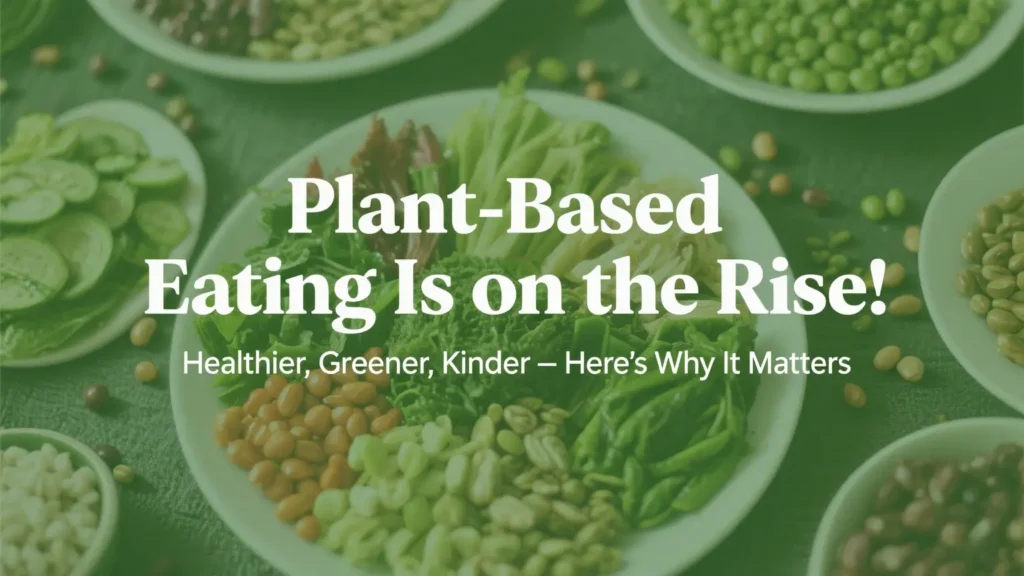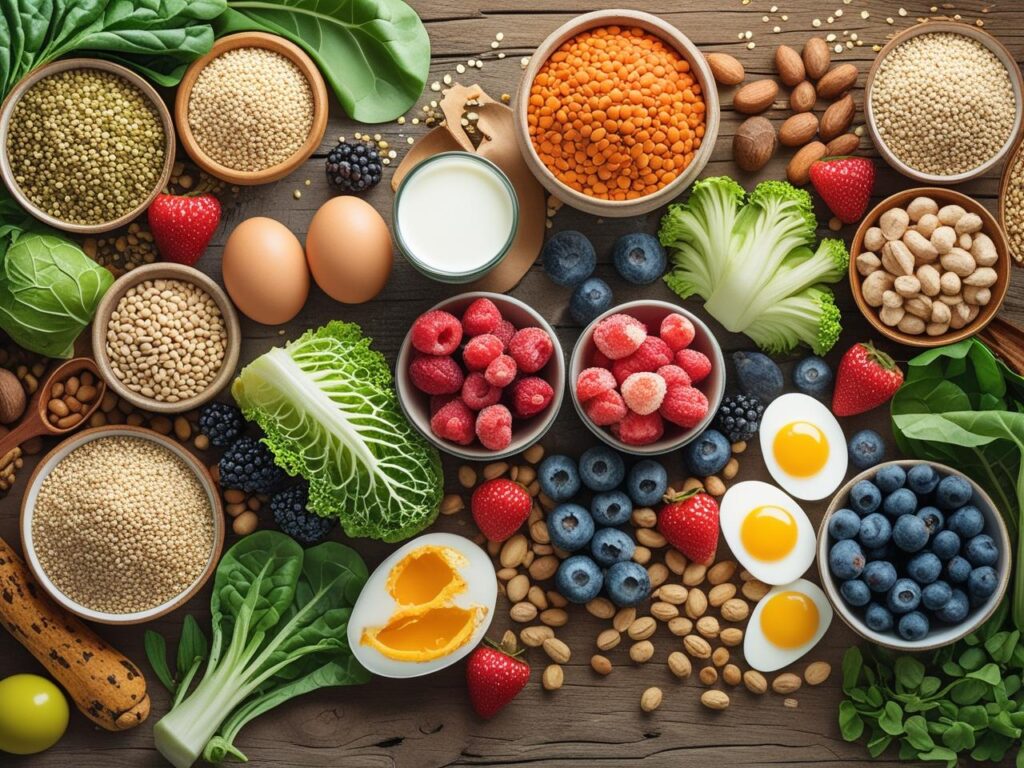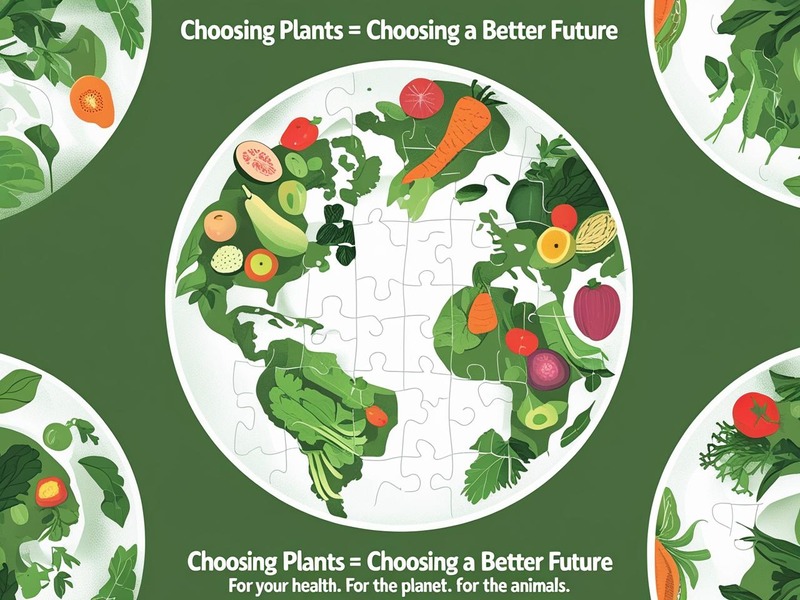The appearance of plant-based products has blown up from downtown city cafés to suburban grocery shelves. The new way of life that once was considered less pragmatic among the majority has now become the new normal and thus precipitated a global debate on the issues of food, ethics, and health. The aforesaid process was brought about by the interplay of personal health goals, environmental emergencies, and the reshaping of social norms. The paper below unveils all these determiners and further outlines how food of the future will look due to the penetration of plant-based diets.

What Is a Plant-Based Diet?
Actually, carrying on from the point, a plant-based diet is not always the same as a vegan or vegetarian diet. It simply means that there is a higher focus on the foods coming from plants and a lower intake of products that come from animals. The core of this diet consists of whole grains, fruits, vegetables, legumes, nuts, and seeds. Although some people remove all animal products from their diet, others might still eat fish, dairy, or eggs, but these would be very rare occasions.
This kind of easy feeding gives many the opportunity to practice new eating skills with plants and therefore not bind themselves to a particular diet. The word “flexitarian” is another example. It refers to someone whose regular diet is made up of plant-based foods but who is not against the idea of including animal products now and then.
Plant-based diets are somehow based on whole, natural foods, the least processed ones, so nutrient value will be the highest and the calories from sugar and/or fat would be the lowest. Foods that are used for those purposes are most often:
- Leafy veggies e.g. spinach and kale
- Whole grains, such as quinoa, brown rice, and oats
- Legumes with higher proportions of proteins, such as lentils and chickpeas
- Various sources of good, healthy fats, such as avocados, seeds, and nuts
- Plant-based beverages which are naturally available like oat or almond milk
Top Reasons Plant-Based Diets Are Growing So Popular
The rise of plant-based diets has been influenced by a mix of health, eco, and cultural factors. The following are the major reasons that have led to this dietary change.
1. Benefits for Health
Numerous researches indicate that people who eat fresh, plant-based food get a multitude of health benefits. It has been proven to be an effective means of lowering the risk of heart disease, high blood pressure, diabetes type 2., and even to some extent cancers. Furthermore, the diets that are more organic tend to have high fiber content, which is reinforcement food passing through the digestive system and is good for sole sugar regulation.
From studies conducted by the American Journal of Clinical Nutrition, it is found that people who devour plant-based diets will experience weight loss, proper cholesterol formation, and reduced inflammation. The majority of athletes and exercise addicts are also turning to plant-based foods with the promise of quicker recovery and performance.
2. Saving the Environment
It is a fact that the cattle industry is one of the most environmentally unstable sources of greenhouse gas emissions, deforestation, and water pollution. The idea of giving up meat and relying on plant-based foods to meet one’s dietary needs is increasingly being regarded as one of the sustainability methods to prevent global warming. A report from the United Nations Environment Programme (UNEP) has highlighted that a significant portion of the human ecological problems can be easily got rid of by a simple action of not consuming animal products.
It is significantly true that plant-based diets require much less natural resources, such as water, raw materials, and land. A typical case is that the production of one pound of beef needs about 1,800 gallons of water, whereas one pound of lentils only takes 300 gallons of water to grow.
3. Ethical and Social Drivers
The surge in the popularity of documentaries like The Game Changers, Forks Over Knives, and Cowspiracy is making people more mindful of the ethical and environmental impacts of their food choices. The younger generation, more specifically, Millennials as well as Generation Z, has essentially made sustainability and animal welfare a major priority that is not far from plant-based values.
Not only social media influencers and wellness coaches but also celebrities have been mainly advocating a green, animal-friendly lifestyle, which in turn has helped in elevating the good cause of plant-based identification and has made it more inclusive. The spreading of plant-based consumptions has found the way even into schools, corporate cafeterias, and fast-food chains as well.

Challenges and Misconceptions
Although it brings a lot of advantages, a complete switch to a plant-based diet may also pose difficulties and provoke misunderstandings. Many of the misconceptions…
Affordability
“Where do you get your protein?” is the most frequently heard question. The issue is that natural protein is in the various plant products such as lentils, beans, tofu, quinoa, and tempeh. Moreover, athletes and bodybuilders can get enough protein from the vegetable sources that can be easily incorporated into their daily diet, without any problems whatsoever.
Cost and Accessibility
Although the purchase of an array of vegan products can sometimes drain one’s pockets, the majority of the plant-based diet of staples is made up of grains, beans, and vegetables sourced from the local market and are therefore cheaper than a diet centering around meat. Where shopping venues like local markets, co-operatives, and bulk bins are concerned, then one has a raft of cheaper options to choose from.
Social and Cultural Barriers
Food is deeply connected with personal and cultural emotions. A change from traditional meat-based meals to plant-based options for some is like a sour foreign. In the beginning, picking up plates with family, friends, or at parties, or reading menus at the restaurants by individuals, especially, is somewhat difficult, but the rapid spread of plant-based options makes the matter simpler.
Tips to Start a Plant-Based Lifestyle
Changing to a vegan diet needs not be perplexing; here are the clear steps to embark upon:
1. Begin with Small Swaps
One of the practical options is to substitute animal products in your regular dishes and make them vegetarian. For instance, you can use lentil as a substitute for ground meat to make tacos, or even go for almond milk in your cereal. Plant-based alternatives like veggie burgers, dairy-free cheeses, and plant-based yogurts have also become increasingly delicious and accessible.
2. Plan Your Meals
Preparing your meals in advance can reduce chore time, minimize the waste, and ensure that you eat a well-rounded diet. Draw a meal chart showing the plant-based food items for each of the three main meals and snacks throughout the day. Here is a list of some of the dishes you can make on your own:
- Overnight oats with chia and berries
- Chickpea salad wraps
- Stir-fried tofu and vegetables
- Lentil soup with whole grain bread
3. Educate Yourself on Nutrition
It is possible to cover all the nutritional needs and avoid deficiencies if you choose food with high contents of iron, calcium, B12, and omega-3 fatty acids. And if it turns out that the amounts are not enough, a registered
dietitian will be there to advise you the right supplements, and indeed, B12 is one of those many vitamins particularly requiring further consultation with a doctor.
4. Find Community Support
Connect with plant-based communities online or in person for recipe ideas, tips, and motivation. Platforms like Reddit, Facebook Groups, and Meetup facilitate lively discussions on all aspects of a plant-based lifestyle, in addition to hosting related events.
The Future of Plant-Based Eating
The plant-based movement is not a fad; it’s a permanent shift in global food culture. The future offers the following trends:
1. Innovation in Alternative Proteins
Meat substitutes grown in labs, fungi derived proteins, and plant-based dairy products obtained through fermentation are examples of such products. These technologies replace real meat with environmentally friendly options that mimic the taste and texture of traditional meat.
2. Institutional Adoption
Public institutions like hospitals, schools, and universities have started integrating more plant-based meals into their menus. They are further motivated to do so by governments of countries like Germany and Canada, which are supporting plant-based guidelines in their national food policies.
3. Expanded Availability
Nowadays, not only are major fast-food chains such as Burger King and McDonald’s offering plant-based options on their menus, but supermarkets are also allocating more shelf space to meat-free products and restaurants are launching plant-based menus. The availability of plant-based products has never been more varied than it is at the moment.
4. Broader Cultural Representation
Plant-based meals are a fusion of different culinary cultures. Plant-based dishes that draw from rich plant-based resources are Indian, Ethiopian, and Thai and Mexican cuisines, thus making the transition tasty and exciting.
Frequently Asked Questions (FAQs)
Is a plant-based diet appropriate for children?
Yes, children can stay fit and healthy with a well-planned plant-based diet. Ensure that the calorie count, protein, and the nutrients are in sufficient amounts.
Is It Possible to Get Slimmer with Plant-Based Diet?
The fiber content may be increased, and the calorie density may be reduced that is why many people seem to lose weight, however the emphasis is on whole foods and not processed plant-based snacks.
How Can I Eat Outside Being Plant-Based?
Many restaurants have vegan options and are open to making small changes to suit the diners. Applications like HappyCow can guide you to such eateries.

Conclusion
Plant-based diets are not just a health fad but they represent a new way of life and they touch all aspects of life including our own wellness as well as the planet’s well-being. Thus, by opting to have more plant-based meals, you are not only improving your health but also positively affecting the environment.
There are a lot of resources, support from others, and food innovations at present, which is an excellent time to delve into the plant-based lifestyle. No matter if you are a first-timer or following a well-established routine, remember that each plant-based choice is very important.